By Dermot Connolly, Isi Frank Ativie, and William S. Bike

Longtime 1st Congressional District Representative Bobby Rush’s announcement of his retirement resulted in a flood of candidates filing to replace him.
In the Tuesday, June 28, primary, 21 people have tossed their hats into the ring, with 17 running for the Democratic nomination and four for the Republican nomination.
DEMOCRATS
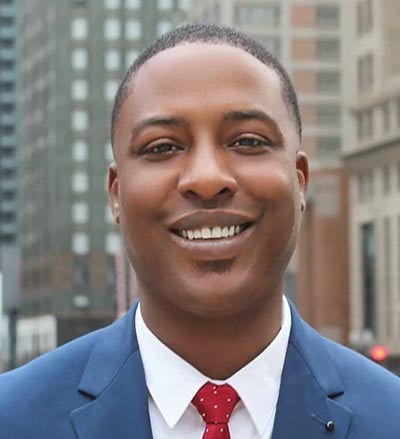
Kirby Birgans is a teacher at Perspectives Charter High School. He and his husband, Laron Taylor, live in the Kenwood neighborhood.
Birgans, who did not respond to requests for an interview, said on his website that if elected he would focus on criminal justice and law reform, housing, Medicare for All, environmental protection, LGBTQIA+ rights, women’s rights, and education reform including canceling student debt and making full-day kindergarten and universal childcare available.
For more information, see www.kirbybirgansforcongress.com.

Chris Butler, 37, a pastor at Chicago Embassy Church Network, is a lifelong South Side resident who now lives in the Beverly neighborhood with his wife, Aziza, and five children. He said he began community organizing when he was in sixth grade and worked on Barack Obama’s 2004 Senate campaign.
Butler said he organized churches to combat community violence through the Chicago Peace Campaign and, as deputy campaign manager at A+ Illinois, Butler helped organize a statewide coalition to transform school funding that included two major teachers’ unions and the American Federation of State, County, and Municipal Employees; Illinois Farm Bureau; Chicago Chamber of Commerce; and Urban League.
He sees himself as a “fresh voice who would be able to work across the aisle.”
As advocacy director at New Schools for Chicago, Butler said he helped expand the number of high-quality school options available for families in under-served communities. He plans to focus on expanding education options if he is elected.
“I believe in public education,” Butler said. “I am a product of Chicago Public Schools because my parents chose that for me, but I think parents should have more choices.” He suggested giving tax credits for people who choose private schools.
He said that wouldn’t take funds away from public education.
“I just don’t think people’s education choices should be limited by income,” said Butler, whose four school-age children, ages five through 11, are home-schooled. He and his wife also have a six-month old baby.
“Healthcare is a basic, fundamental right,” said Butler, who advocates for continuing and improving the Affordable Care Act, commonly referred to as Obamacare.
“It did not go far enough with affordable prescription drugs,” Butler said. “It made a lot of money for insurance companies. We should have publicly funded, privately delivered healthcare.”
In light of the Supreme Court’s addressing Roe vs. Wade, Butler said the Federal government should take up the issue. He added he does not want abortion expanded in Illinois and advocated instead for more funding to help pregnant women who want to carry their pregnancies to term.
Butler said he was involved in community policing and believes in supporting police, “but it is not carte blanche,” meaning the police should not have unlimited autonomy.
“As elected officials, we have to recognize that life is the most valuable commodity to have,” Butler said. “And I mean everybody’s life. Let’s invest in our younger citizens,” said Butler, asserting that young people need alternatives to keep them from getting involved in crimes.
For more information see www.electchrisbutler.com.

Community activist Jahmal Cole, founder and CEO of My Block My Hood My City, who did not respond to requests for an interview, said on his website he is “running for office to put an end to gun violence.”
Cole is campaigning on issues such as economic justice, including raising the Federal minimum wage to $15; improving healthcare, especially for minorities; and racial equity, including ending the Federal death penalty, restoring voter rights, and making it easier for released prisoners to find work and return to society.
More information is available at www.cole2022.com.

State Sen. Jacqueline Collins (D-16th), said she is the most experienced of the candidates, pointing out that she has been a State senator since 2003.
Born in McComb, MS, Collins moved as a child to the Englewood neighborhood. She majored in journalism at Northwestern University and is a graduate of Harvard’s John F. Kennedy School of Government and Harvard Divinity School. She also holds a JD degree from Loyola University Chicago School of Law and was an Emmy-nominated editor at CBS-TV (Channel 2) before going into politics.
She said her congressional campaign, whose slogan is Jacqui for Justice, “is rooted in economic, social and racial justice.”
Collins explained, “I would love the opportunity to serve in Congress. As a State senator, I have been able to work across the aisle, and I would do it in the House. It is important to me to be a role model.”
When asked about addressing crime at the Federal level, Collins noted she has had success as a chief sponsor in the Senate of House Bill 4383, banning “ghost guns,” which Governor JB Pritzker signed in May. The new State law—the first of its kind in the Midwest—bans so-called “ghost guns,” those homemade weapons that do not have serial numbers or any way to track them.
Collins criticized “reactive responses” to increased crime in Chicago and said anything like the curfews or bans on teens in Millennium Park should be applied “across the board” and not targeted against Black and brown residents.
She also said she championed a law banning predatory lending and noted she would favor ethics reform as well as campaign finance reform.
“I’ve been a big proponent of it in the State senate, and it is much needed at the Federal level,” she said.
Collins maintains campaign finance reform is needed to prevent politicians from being beholden to lobbying groups such as the National Rifle Association.
Regarding abortion rights, Collins said she has a “100% rating with Planned Parenthood” and believes the Federal government should “codify reproductive health rights. Regarding Roe vs. Wade, Collins said she would favor making it easier for women from neighboring states to come to Illinois for abortions.
She said the issue should have been handled by Congress already when Texas and other states began passing laws limiting women’s rights and abortion rights.
More information is available at www.jacquiforjustice.com.
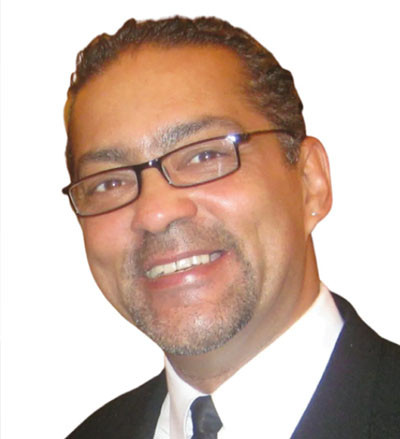
Steve DeJoie, 62, was born in New Orleans but grew up in Chicago, where he graduated from Kenwood High School before earning a bachelor’s degree in political science and international relations from Western Illinois University in 1983. He is a business development consultant.
“My campaign is as grassroots as it can be,” he said, acknowledging his website is basic without any frills.
He said students should have the right to public education, at least up to an associate’s degree, without having to go into debt.
Cole said the right to choice should “absolutely be codified to protect reproductive rights across the country” by Congress.
He said he also believes in the “right to life,” but noted, “No one wants to have an abortion, but in cases of rape, incest, or the life of the woman, women should have that choice.”
Regarding healthcare, he said the COVID-19 pandemic has shown that funding is available for it, pointing out that vaccines are being offered free of charge.
“We have to extend that to include people suffering from longterm COVID symptoms and other healthcare,” he said.
He said he has been working with local police districts to reduce crime and noted, “Marches are symbolically effective” to address crime. “My philosophy is that we need community policing. CAPS should be given to the community organizations,” said DeJoie.
Concerning ethics reform, DeJoie said, “You can’t legislate honesty but you can certainly hold people to the oath that they took.”
Pro-education, DeJoie said, “If you go to the Chicago Public Schools, you should at least be able to continue your education and get an associate’s degree free of charge. The City Colleges are a great resource.”
For more information, see www.dejoieforcongress.com.
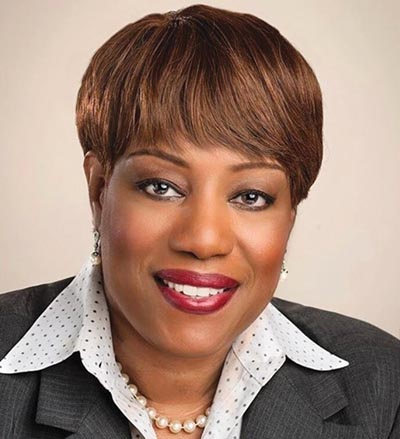
Patricia “Pat” Dowell has been Chicago’s 3rd Ward alderwoman since 2007. She heads the City Council’s Budget Committee.
“My entire career as a social worker, city planner, and alderman has prepared me to do work in Congress and I am ready,” said Dowell in a recent interview.
Dowell cited the redevelopment of the Rosenwald Courts housing complex and other Bronzeville landmarks among her accomplishments, in addition to the creation of new parks and grocery stores to eliminate food deserts. She also helped provide affordable housing and commercial retail space, social services, employment, and financial counseling services to residents of Henry Horner Homes, which now is a mixed-income community.
“I feel being a congresswoman is the next step,” Dowell said. “I have done the work on the ground. Being an alderman since 2007 has given me a track record that people can reach out and touch.”
Concerning crime, she said, “The Federal government can help by promoting legislation that helps maintain our safety, whether it is banning assault weapons or ghost guns. I want a national registry of FOID cards and gun permits, especially because guns—and people—travel over state lines.”
Dowell said Federal task forces have successfully worked with local law enforcement to tackle crimes such as carjackings and should do so to alleviate gun crimes too.
“We also need tougher penalties for people who traffic guns,” Dowell said. “What we need at the Federal level is consistent policies instead of this potpourri of [state] laws.”
The same goes for abortion laws, she said.
“I am pro-choice and strongly believe a woman’s body and the health of that body are between her and her doctor,” said Dowell. “I will be a staunch supporter of codifying Roe vs. Wade at the Federal level. Women cannot go back to the days pre-1973 and we won’t. That is the opinion of a majority of Americans.”
She said healthcare funding should include physical and mental health.
“I am a supporter of Medicare for All and will work to secure the rights for everyone who needs that,” Dowell said. “But if you want to opt out and have your own private insurance, you should be able to do so.”
“Healthcare is a right, and coverage should include the whole spectrum, including ‘long-haul’ COVID-19,” she added.
About education funding, Dowell said, “We need to invest more Federal dollars into the school systems, and the school systems should be held accountable. City colleges most certainly should be supported by the Federal government. College and trade schools aren’t for everyone either. So, the Federal government should invest more in what are called cutting-edge industries that people would find interesting, like e-sports or transportation logistics.
“Furthermore, we should clear young people’s college debt. They should not be saddled with that,” she said, pointing out that her 38-year-old son is still paying off his debt, many years after graduating from a four-year private institution.
Dowell said she has been a “big supporter” of ethics reform in the City Council. “I serve on the Ethics Committee and would expect to support similar legislation in federal government,” she said.
More information is available at www.illinoisfordowell.com.
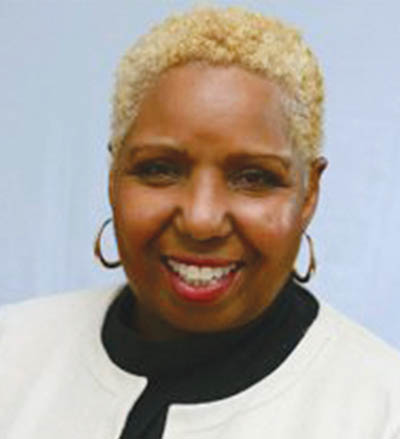
Cassandra Goodrum, 62, an attorney, has been a professor of criminal justice at Chicago State University for the past ten years. A South Shore native and current Chatham resident, she earned her law degree from Northwestern University.
“I actually announced my candidacy last December, before Rush said he wasn’t running,” she said. “We were long overdue for a change.”
She said ethics reform “definitely needs to be addressed at the national level. We need to look at how the ethics guidelines are written.” She cited judicial hearings on sexual misconduct held for people seeking Supreme Court seats as one reason for its need.
Goodrum said she also wants to improve the relationship between police and 1st District residents and believes economic development will help solve the crime issue.
“I believe everyone should be able to afford a college education at no cost,” Goodrum said. “It is just kind of unfortunate that people have to go into debt for it.”
Regarding healthcare, through her work handling disability and Social Security cases, she said she has gotten to know many people dealing with longterm effects of COVID-19, preventing them from re-entering the workforce.
“The government has to help them get access to Social Security and disability,” she said. “You’ve got to know the costs.”
More information is available at www.goodrumforcongress.com.

Jonathan Jackson, 56, son of the Rev. Jesse Jackson, is an educator with an MBA from the Kellogg School of Business at Northwestern University.
“I understand the power of diplomacy,” he said, pointing to his experience traveling internationally with his father and helping to free about 500 civilians held captive during the Gulf War in 1991.
He has taught finance and entrepreneurship at Kennedy-King College and currently is a business professor at Chicago State University.
Jackson said education funding should be seen as part of “national defense. We have to make education affordable.”
Jackson favors Medicare for All, which he said would help residents get medical care for diabetes, obesity, and other issues in addition to COVID symptoms. He also said funding should go into keeping “safety net” hospitals in the community afloat.
Jackson said the pandemic has shown how everyone in the community needs access to affordable healthcare, and in Congress he would support funding for more community and school-based health centers for underserved populations.
Jackson said removing more illegal guns from the street is a key to addressing the issue of crime. He said gangs have access to the same kind of weaponry as police, and Chicago is leading in national efforts to trace guns.
More information is available at www.jonathanjacksonforcongress.com.

Marcus Lewis, a 1977 graduate of DeLaSalle High School, received a bachelor’s degree in business management and banking from DePaul University. His professional experience includes working for the United States Postal Service as a mail handler from 1997 to 2014 and as an ordained Apostolic Pentecostal minister since 1999.
Lewis, who did not respond to requests for an interview, cited on his campaign website that his issues are “putting the guns away,” preventing gentrification of Black communities in the district, housing the homeless, and reparations for the families of former slaves.
More information is available at www.marcuslewisforcongress.org.

Ameena Matthews, 54, a community anti-violence activist, is a daughter of Jeff Fort, a gang leader who has been in prison since she was a baby. Matthews began working as a “violence interrupter” with Ceasefire, now called Cure Violence, in 2006.
Matthews did not respond to requests for an interview. “I dedicated my life to peace building, social change, and combatting violence in the communities,” Matthews said on her campaign website. “I became a voice for many who couldn’t speak for themselves. I knew it was imperative that I worked to inform people of the trauma prevention measures that were available. As I fight for equality in our communities, it became even more evident that there is major work to be done at the City, State and Federal levels.”
More information is available at www.drameena.org.
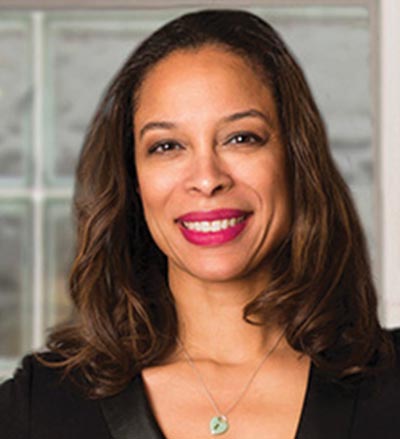
Nykea Pippion McGriff is a Coldwell Banker real estate broker and former president of Chicago Association of Realtors.She was also a political coordinator for Congressman Rush for several years.
McGriff did not respond to requests for an interview. Improving public safety is one of her core missions, having lost her eldest son, Xavier, in 2017 to a “random act of violence.” She said that tragedy spurred her on to run for office. McGriff said she also wants to make it easier for residents to get access to capital to own homes and businesses.
More information is available at nykeaforcongress.com.
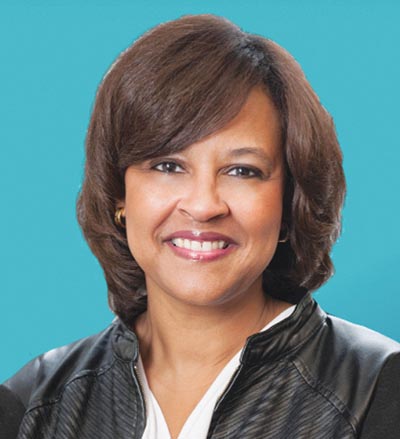
Karin Norington-Reaves, a former legislative aide, has received Rush’s endorsement to replace him in Congress. She did not respond to requests for an interview.
Norington-Reaves advocates strengthening the Affordable Care Act, expanding Medicare to include younger people, and creating a public option for health care to combat problems such as expensive prescriptions and “inequitable access to healthcare, depending on where you live,” she said on her website.
“We must allow the government—like private insurance companies can—to negotiate for lower drug costs,” said Norington-Reaves. She also pledged to “fight to ensure pre-existing conditions, such as asthma, diabetes, or even headaches continue to be covered by insurance companies. And I will fight to lower the maternal mortality rate that disproportionately affects Black women.”
More information is available at www.votekarin.com.

Robert Palmer earned a bachelor’s degree in psychology from Roosevelt University and is pursuing a graduate degree from National Louis University. His work experience includes being a special education classroom assistant, licensed substitute teacher, managing real estate broker, actor, and producer.
He has been affiliated with the National Association of Realtors, Illinois Association of Realtors, Chicago Association of Realtors, National Society of Leadership and Success, Service Employees International Union, and Screen Actors Guild‐American Federation of Television and Radio Artists.
He did not respond to requests for an interview. A “Robert Palmer for Congress” Facebook page is his website.
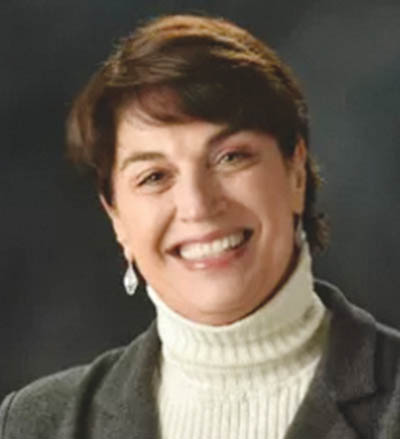
Terre Layng Rosner,a Frankfort resident and tenured professor at the University of St. Francis, also is running for the seat.
“What I don’t have in money and name recognition will be made up with experience, enthusiasm, and energy,” according to Rosner, who calls herself an “independent Democrat” and said she will never be a “career politician.”
Rosner, who did not respond to requests for an interview, wants students to be able to get interest-free loans for college or trade apprenticeships. Rosner believes in union labor but said she sees the importance of ensuring that companies “stay afloat,” too.
More information is available at www.terrelaynrosner.com.
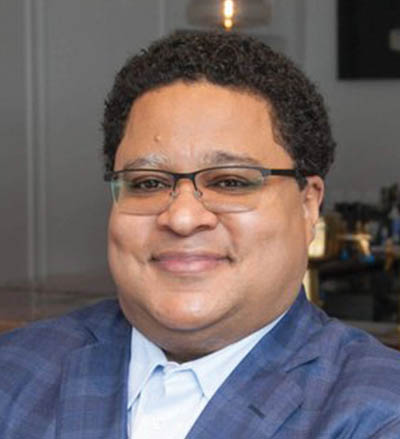
Jonathan Swain is president and CEO of LINK Unlimited Scholars, which connects underserved African American youth to opportunity and economic stability. He also owns the Kimbark Beverage Shoppe in Hyde Park and is director of Eat, Drink, and Be Events, an event planning and festival operations company. Swain is a former chair of the Chicago Board of Elections.
He believes addressing the underlying causes of undereducation and weak support systems for the public can help reduce crime and wants to confront the lack of resources for mental health. He strongly favors increasing support for young people through mentoring, education, and employment. He believes these sources of stability gradually increased can lead the younger generation to a greater sense of belonging.
“While evaluating where we spend our dollars, we need increased funding for police reform to bring about a change in policing that reduces harm to diverse communities,” Swain said. “Additionally, with a lack of resources in investigatory ranks throughout police districts, when crime does happen, it often goes unsolved—which is why I also support the strengthening of our investigatory ranks within law enforcement.”
Swain believes more work needs to be done on ethics reform to ensure society holds legislators accountable and to a high standard of conduct that befits their office. In his opinion, members of Congress should not trade individual stocks, and Swain wants them barred from purchasing new ones.
“I believe that Congress should act in a way to avoid the appearance of impropriety and conflict and that anything to address circumstances of such should be done in the public eye,” he said.
Concerning voter protection, Swain believes the Federal government has a responsibility to step in to ensure all adult citizens have access to the polls and are guaranteed their right to choose their elected officials. He anticipates expanding voter participation in Black communities across Chicago to ensure Black voices are represented at the ballot box.
“I support the John Lewis Voting Rights Act and will work to ensure its passage into law,” he said.
Swain supports expanding a public healthcare option and would create a government-run health insurance agency to compete with private health insurance companies. He said he would work to lower prescription drug prices for Americans through regulation and legislation.
Swain supports eliminating student loan debt and measures to make public and community colleges free for all students. “It’s for the betterment of society when more people have increased access to education to help them better themselves and their communities,” Swain said.
For more information, log on to www.swain4us.com.

Michael Thompson is an attorney and workforce and business solutions manager.
Regarding crime Thompson, who did not respond to requests for interviews, noted on his website that “restorative justice, mental health, and workforce development are the focus of our public safety initiatives,” focusing on “true rehabilitation and not just punitive measures.” He wants to see more Federal support for mental health facilities and community organizers and supports developing community restorative justice programs including “restorative justice criminal courts with binding legal decisions to promote alternative sentencing programs.”
Concerning education, Thompson supports universal day care programs to “ensure longterm student success by providing a proper foundation prior to their transition to K-8th grade education,” he said
Thompson considers job development one of his top issues.
See votethompson2022.com for more information.
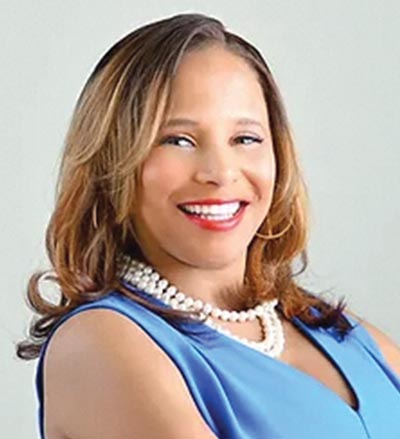
Until March of this year, Charise Williams worked at the Illinois Criminal Justice Information Authority (ICJIA) as deputy director and chief of staff, where she was responsible for a $500 million budget and oversaw 90 employees. Previously, she was director of external affairs for the Chicago Federation of Labor, deputy chief of staff for civic engagement for the Illinois State Treasurer, a school teacher, a senior programmer for Link at the Illinois Department of Human Services. Four years ago, she ran for commissioner on the Cook County board.
If elected, Williams would make gun trafficking illegal and a Federal offense. She said she “feels obligated to fund and pour resources into underserved communities.” Williams credits her experience with the ICJIA in her advocacy for more resources for mental health services, particularly in schools.
Concerning ethics reform, Williams said she wants to rectify mismanagement of political funds and that “it’s important to include transparency in this topic.” She also is interested in “building capacity for communities by teaching them how to make financially safe budgets before they receive” government funds.
She believes the GOP is trying to eliminate the John Lewis Voting Rights Act and overturn Section 5C of the Federal Voting Rights Act to take away the historical protection afforded to voters. Williams finds this “very disturbing,” she said, as she wants to preserve equality for all communities to vote. Williams thinks that protecting voting rights can improve economic circumstances for all residents of color concerning housing, transportation, and other necessities.
Harming voting rights “can make an unraveling effect,” Williams said, adding, “To make people in our state and my district aware and care about” the importance of voting rights is “going to be something that I want to make sure that we’re aware of.”
She believes additional federal funding for COVID-19 relief is crucial for every resident in Illinois and the district.
As the daughter of a former teacher, Williams encourages the younger generation to favor trade schools. She considers funding those educational institutions an “obligation and resource priority, including building campuses.”
Williams also wants more equitable funding for public schools than the current system relying on property taxes. “I live in Bronzeville, and all of the public schools are different than the public schools in Lincoln Park” because of schools being funded through property taxes, she said, adding, “We plan to structure on how we fund our public schools so everyone can be able have the same amount of books, laptops, and iPads.”
For more information, log on to www.chariseforcongress.com.
REPUBLICANS
Eric Carlson manages and operates two nonprofit organizations; one assists veterans diagnosed with post-traumatic stress, and the other conducts disaster response operations across the country.
Carlson, who did not respond to requests for an interview, would initiate Department of Justice investigations of 1st District courts and of state’s attorney’s offices. Regarding education, Carlson’s policies are school choice and vouchers for all students, dismantling teachers’ unions, eliminating Federal “interference” with local schools, and banning critical race theory.
His policies on healthcare consist of keeping the Federal government out of the mix and letting the market and competition set prices. He also would lower corporate taxes, lower income taxes while creating a flat tax, and reduce the number of Internal Revenue Service agents.
Carlson would give illegal immigrants six months to sell their U.S. properties and would deport them immediately after six months. He also would hold government officials criminally liable for breaking immigration law. He advocates canceling U.S. debt to China, expelling Chinese nationals from the U.S., and banning American business from dealing with China.
See www.ericcarlsonforcongress.com.
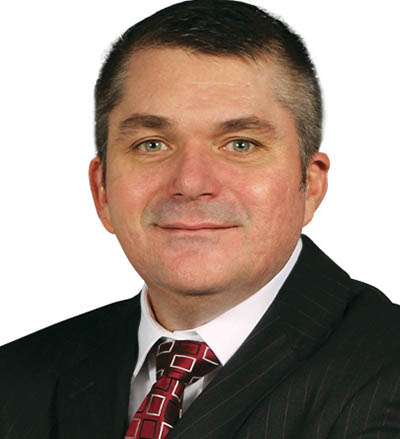
Jeffery T. Regnier is a New Lenox, IL, businessperson.
He describes himself as a conservative Republican and a “strong supporter of our Constitution.” He started a construction company that builds parks in low-income neighborhoods; owns a gun store, Kee Firearms and Training; and has worked for General Motors as a mechanic.
He wants to reduce crime by building community centers and providing greater education for inner-city youth to prevent them from starting trouble. He also wants to provide opportunities for kids, teenagers, and young adults to participate in part-time jobs after finishing classes during weekdays.
Regnier would like to see ethics reforms, diversity programs, and improved proper law enforcement training.
“We would like to work on voter integrity to make sure that everybody’s vote counts,” he stated. “And we would like to work on corruption specifically in the city politics. We would put more Federal resources to investigate and keep our elected officials from being criminals. And prosecute the ones that are.”
Regnier would like to work with State officials on upholding voter protection as well as preventing any acts of fraud during the election process when the votes are cast.
Concerning healthcare, he would work on making drug and insurance companies lower prices for patients.
The father of six children, he wants to change the entire system of public education and encourages parents to consider enrolling their children into different scholastic institutions.
“The Chicago area and specifically CPS is one of the worst school districts in the nation, and it’s been that way for decades,” Regnier added. “They have not really done much to improve education. CPS budgets are silly large, but yet they have the lowest turnout on education. We need to make the public education system compete for our children’s education. I support a system in which the money follows the child to give parents choices on whether they want to put them in parochial schools or home schooling, which is now an option that parents can do.”
Regnier supports unions and vows to protect union pensions. He would strengthen security at the border to cut off the flow of fentanyl that is causing overdoses in the U.S.
He also believes in support for single parents and seniors. Strongly pro-gun, he would even eliminate the Firearm Owners Identification Card.
Regnier does volunteer work for the United Way, local food banks, veterans’ causes, and churches; with the Church of Faith in Chicago, he assists in minority outreach and voter registration.
See regnierforcongress.com for more information.
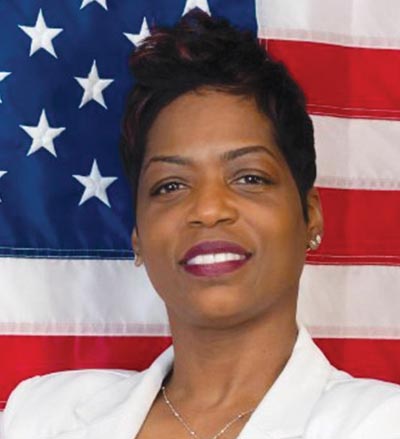
The 2020 Republican nominee and cleaning service owner Philanise White believes “sensible resolutions need to take place among the various levels of law enforcement,” and this also applies to local police agencies. “While I do believe that there have been incidents of improper incarcerations,” she said she is an avid supporter of law enforcement and accepts all officers who have committed errors while on duty, adding that “those who have suffered due to it should be the ones given a second chance.”
She also believes there is an easy solution to ethics reform: encouraging applicants to use and value the essence of honesty. “I am an advocate for background checks of all candidates seeking to run for political office,” White said. “I am also a proponent of term limits. If both of these are enacted, the pool of candidates will shrink due to people eliminating themselves. Ethics begins with people of integrity; if you start there, there is no need for reform.”
White does not believe there is an issue with voter protection. In her perspective, all African Americans are able to register and vote.
“For decades, American citizens of all demographics who want to vote have been allowed to vote,” White said. “This includes Black Americans. When voting took place on election day, people planned for it and, if employed, they were allowed either the same day off or the ability to leave work early to do so.”
White feels more research is needed with funding concerning long-term effects of COVID-19. Yet White also thinks healthcare should be put back in the control of the individual without government interference to allow people to choose healthcare funding to choose plans in their best interest.
White supports educational funding that follows the student rather than the school or district. She wants parents to know how education can be a primary tool for their children’s future.
“With funding for education going directly to the student, parents can decide what are the best options for their child, including home schooling,” White said.
For more information, log on to www.philaneseforcongress.com.

Musician Geno Young touts his “enormous support” for law enforcement and believes crime is a top issue.
“I believe that there must be accountability for those [police] who abuse their authority, but I will never support the smearing of the masses [of police] due to the actions of a few,” Young said. “One thing I would like to do Federally is make sure that the pipeline of violent offenders, drugs, guns, and violent criminals that have come over our Southern border in droves—2.2 million people in 2021—is shut down.”
He noted that “Over 108,000 people died from overdoses in 2021 alone. Many of these drugs come from the Mexican drug cartels who are in cahoots with China and who seek to destroy Americans without ever laying one foot on American soil,” Young said. “I plan on cutting funding from ‘big three letter’ [Federal] organizations which have failed the American people and redirect those funds to U.S. Customs and Border Protection and U.S. Immigration and Customs Enforcement to make sure they have the resources they need.”
Young feels there is no major issue related to voter protection that impacts African Americans and other minorities of color. “I 100% support voter ID and laws that make it easier to vote and harder to cheat,” he said. “The notion that particularly people of color cannot obtain ID cards is as racist as it is ludicrous. If we didn’t have the mental acuity to obtain IDs, we’d be barred from legally flying on planes as well as driving cars. It’s an egregious lie that needs to die a swift death.”
He said he is an advocate for a free-market approach to healthcare and opposes funding for COVID-19 relief.
“Countless people including one of my opponents abused the system and applied for funds that they didn’t need, while many businesses who needed the money never got it and closed,” he stated. “The cash cow has died; not a penny more in light of what is shaping up to be the greatest fraud against our Federal government in history.”
Young believes education should be a local issue and strongly suggests that money decisions always should be in the power of every student’s parents regarding choices on where they should attend school.
“I will seek to return all educational authority to the states by seeking the dissolution of the Department of Education, which was unconstitutional from the start and has done more harm than good,” Young said.
See www.genoyoung.com for more information.
